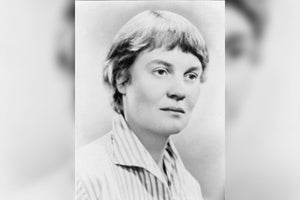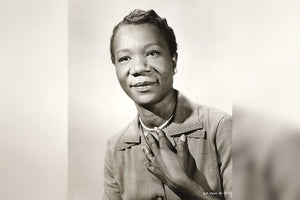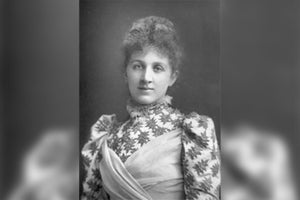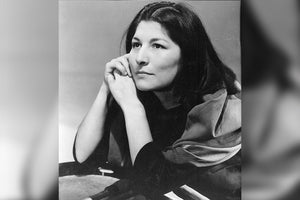Birthday: June 30, 1917
Who is Lena Horne?
Lena Calhoun Horne was an American singer, actress and activist who deliberately broke new ground for black performers in Hollywood. She is one of the most beautiful, talented and respected performers of all time.
5 Facts About Lena Horne
- Both her parents were from a mixture of African, European and Native American descent.
- She dropped out of school without a diploma.
- She was noted for her activism against discrimination throughout her career.
- Her fame began in the 1940s.
- She was one of the first African Americans to tour with the all-white band, Charlie Barnet orchestra.
Inspirational Quotes from Lena Horne
“You have to be taught to be a second class; you are not born that way.”
“I’m still learning, you know. At 80, I feel there is a lot I don’t know.”
Lena Horne Biography
Early Life
Lena Horne was born on June 30, 1917 in Brooklyn, U.S. Her father was a banker and professional gambler while her mother was an actress. Both parents had a mixed heritage of Native American, African American and European American descent.
When she was three years old, Horne’s parents separated, and she was left to stay with her grandparents for a while. She later accompanied her mother on the road, and she stayed with friends and family throughout the country. Sometime later, her mother remarried, and Horne was raised by her grandmother.
She joined Washington high school in Atlanta before going to Brooklyn Girls high school.
At the age of 16, Horne left school and became a dancer at Cotton club in New York City to support her ailing mother. She danced at the club for two years before she starred in her own shows.
In 1935, she became a singer and principle vocalist of Noble Sissle & Orchestra and used the name Helena Horne. Shen briefly abandoned her musical career at the age 19 and got married to Louis Jones. The couple had two children, Gail and Teddy and divorced in 1944.
Lena then appeared in Broadway musical revue Lew Leslie’s Blackbird of 1939. Afterwards, she joined the Charlie Barnet Orchestra in the early 1940s. However, she did not stay for a long time in the Orchestra due to racial prejudice.
In 1941, Horne returned to New York where she worked at the Café Society nightclub.
Road to Hollywood
In 1943, Horne got a career boost and got the opportunity to feature in Life Magazine. This made her the highest-paid black entertainer of her time. Afterwards, she moved to Hollywood and was noticed by MGM music supervisor, Roger Edens. This saw her sign a seven-year contract with the studios as a potential singer and actor.
During the signing of the contract, her father demanded that Horne should not be given domestic worker roles, something that was the norm for African American actors at the time.
Horne was featured in several movies including Cabin in the Sky (1943), Meet Me in Las Vegas (1956), and The Wiz (1978). She also starred in the Stormy Weather (1943) film where her song became the theme song.
Horne found herself blacklisted and was not able to act in other films for more than a decade. Nonetheless, she still made television appearances and performed in posh nightclubs.
Music Career and Activism
Horne became a popular singer of her time. She quickly gained popularity with her Lena Horne t the Waldorf-Astoria albums of 1957. She also did a performance in Jamaica which made her receive the New York Drama Critics Poll Award in 1958.
Apart from her outstanding acting and singing performance, Horne has also made an impact as an activist. She is known for her work when it comes to civil rights and political organizations. As a black woman, Horne refused to perform roles that stereotyped women from the African American descent. She even rejected suggestions on getting Latin roles because of her light skin color.
In 1940s, she sued several theatres and restaurants for discrimination. She became an active member of the leftist group Progressive Citizens of America. She even on performed at rallies on behalf of National Council for Negro Women and National Association for the Advancement of Colored People (NAACP). In 1963, Horne participated in the March on Washington.
Awards
Horne won a Tony in 1981 followed by a NAACP medal two years later. In 1995, she won the Best Jazz Vocal Performance Award. She received the Lifetime Achievement Award in 1989 and the Best Pop Vocal Performance, Female in 1981. In the same year, she also received the Best Cast Show Album Award.
Personal Life and Death
Between 1970 and 1971, Horne lost her son, father and brother. This made her disappear from the public scene, although she still did some television appearances and toured with Tony Bennett.
In 1981, Horne made a glorious return to Broadway with her show Lena Horne: The Lady and Her Music.
In 2010, Horne died from heart failure in New York City at the age of 92. Her funeral was held at St. Ignatius Loyola Church in New York and her remains were cremated.
![]() Fast Shipping
Fast Shipping![]() Subscribe to our Newsletter
Subscribe to our Newsletter![]() 🌟 New Global Competition 🌟
🌟 New Global Competition 🌟















